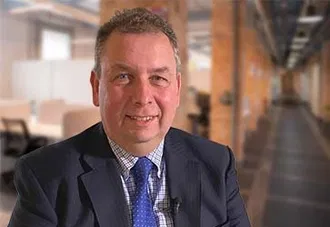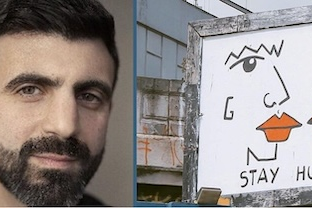Campaigners respond to Scottish vote on Assisted Dying Bill

Dr Gordon Macdonald
Source: Care Not Killing
The Scottish parliament has approved the general principles of legislation that could introduce assisted dying for terminally ill Scots. In a landmark vote MSPs voted by 70 votes to 56 in favour of the Assisted Dying for Terminally Ill Adults (Scotland) Bill at Stage One, introduced by Liberal Democrat Liam McArthur, with one abstention.
Responding to today's vote, Dr Gordon Macdonald, Chief Executive of Care Not Killing, welcomed the closeness of the vote as evidence that more politicians hear what changing the law would mean, the less likely they are to support it.
He commented: "In an ideal world, MSPs would have rejected this dangerous and ideological bill today, however we are greatly encouraged by the closeness of the vote, which no one predicted when the legislative process started over 12 months ago. The simple explanation is the more MSPs hear what legalising assisted dying would mean - rewriting the NHS charter, fundamentally changing the nature of health care in Scotland and how it would put pressure on the terminally ill, vulnerable and disabled people to end their lives prematurely, the less inclined they are to back it."
He continued: "The McArthur Bill, just like the Leadbeater south of the border is modelled on the US state of Oregon, where a majority of those ending their lives consistently cite fear of being a burden on their families, carers or finances as a reason. Here we have also seen how a law sold to the public as being for terminally ill mentally competent adults has been expanded to include those eating disorders such as anorexia and even insulin dependent diabetes.
"There are other problems too. Legalising Physician Assisted Suicide also seems to normalise suicide in the general populations. Indeed, academics who looked at this emerging trend concluded that legalising assisted suicide was associated with an increase of 6.3 per cent in the numbers of suicides in Oregon, once all other factors had been controlled. Among over 65s the figure was more than double that.
"At the same time testimony from Professor Joel Zivot, casts doubt on the myth being put forward by those who want a change in the law that patients opting for the lethal cocktail of drugs die a quick and painless death. Evidence from Tennessee which uses the same drugs to kill people on death row as the ones used in Oregon and are likely to be used in Scotland and other parts of the UK, suggest the inmates die from drowning in their own secretions or what doctors call a pulmonary oedema. As we know from data published by health authorities in Oregon, the process of dying can take hours even days. Both the McArthur Bill and Leadbeater Bill are silent on what the role of doctors should be when confronted with a person slowly dying in agony after ingesting the poison. No wonder so few doctors are willing to participate in state assisted suicide."
Dr Macdonald concluded: "As in the rest of the UK, Scotland's palliative care system is massively under resourced and stretched to breaking point. Yet we are not debating how to fix it. The scandal here is there are more elected politicians in Holyrood than palliative care doctors in Scotland and one in four people who would benefit from this type of care aren't receiving it. This is what we should be talking about and finding how we can ensure whether you live in Peebles, Glasgow, Fort William or Findochty you have access to the very best care. In short, we need more care not killing."
Care Not Killing is a UK-based alliance bringing together over 40 organisations - human rights and disability rights organisations, health care and palliative care groups, faith-based organisations groups - and thousands of concerned individuals.
CNK has three key aims: to promote more and better palliative care; to ensure that existing laws against euthanasia and assisted suicide are not weakened or repealed; and to inform public opinion further against any weakening of the law.
If you would like to talk with someone about issues raised in this article, the Samaritans are available 24 hours a day. Call free on 116 123 or visit: www.samaritans.org


















